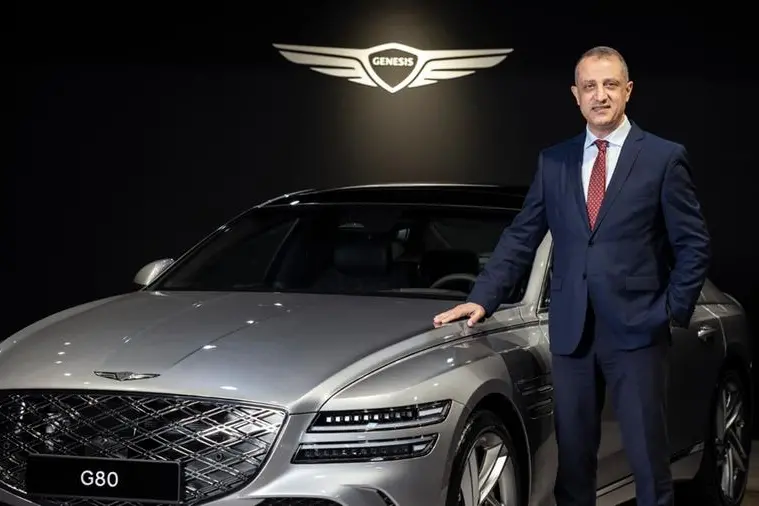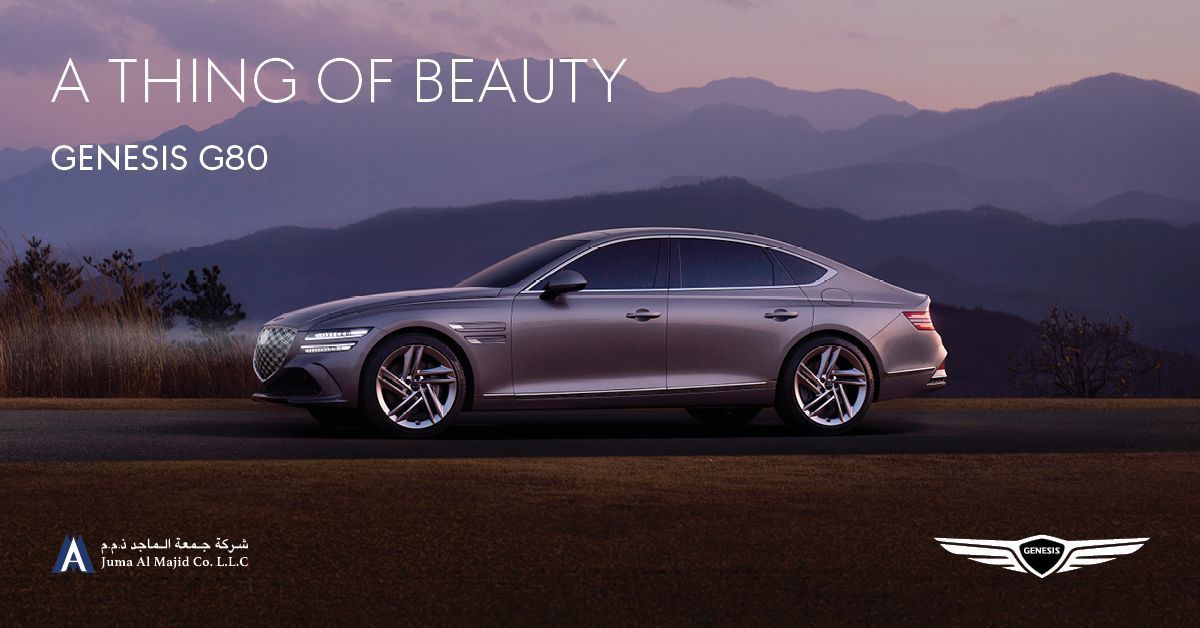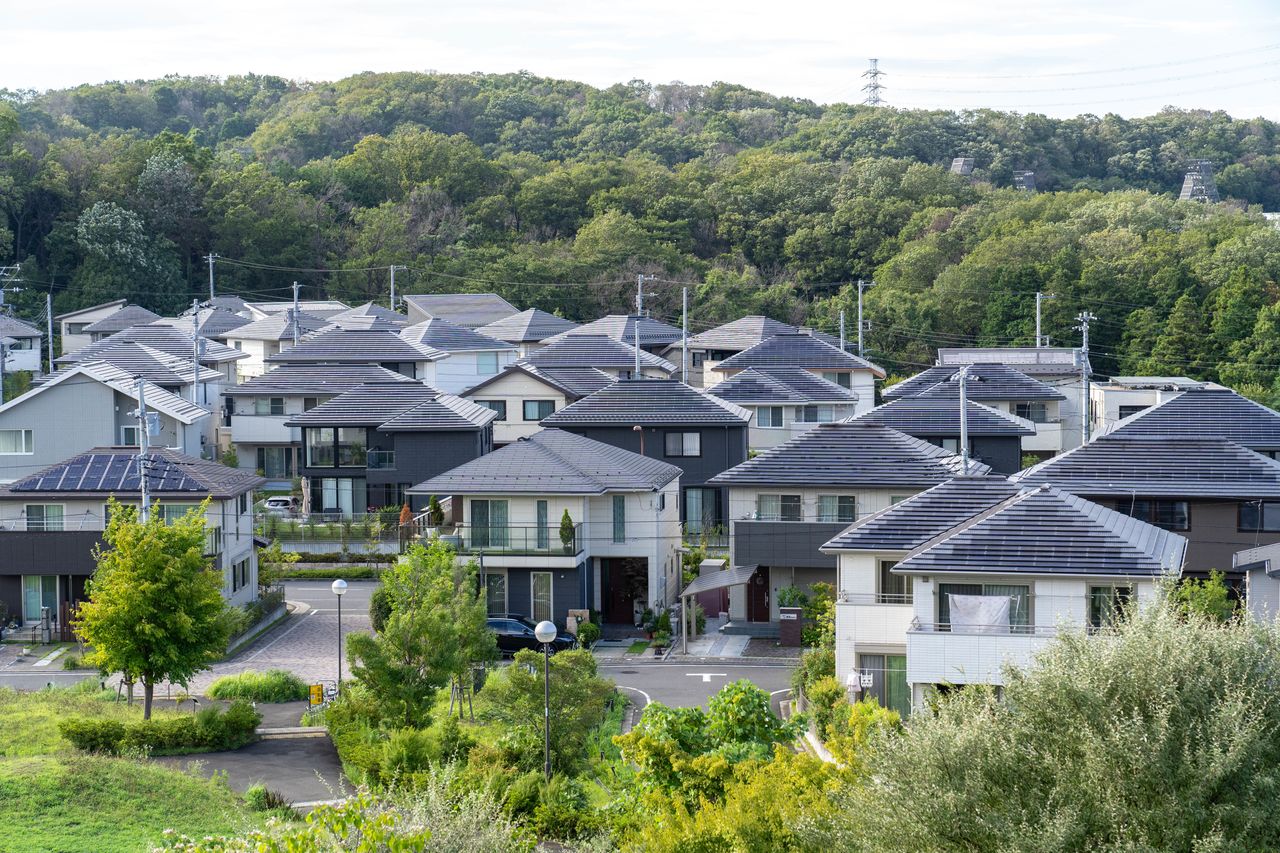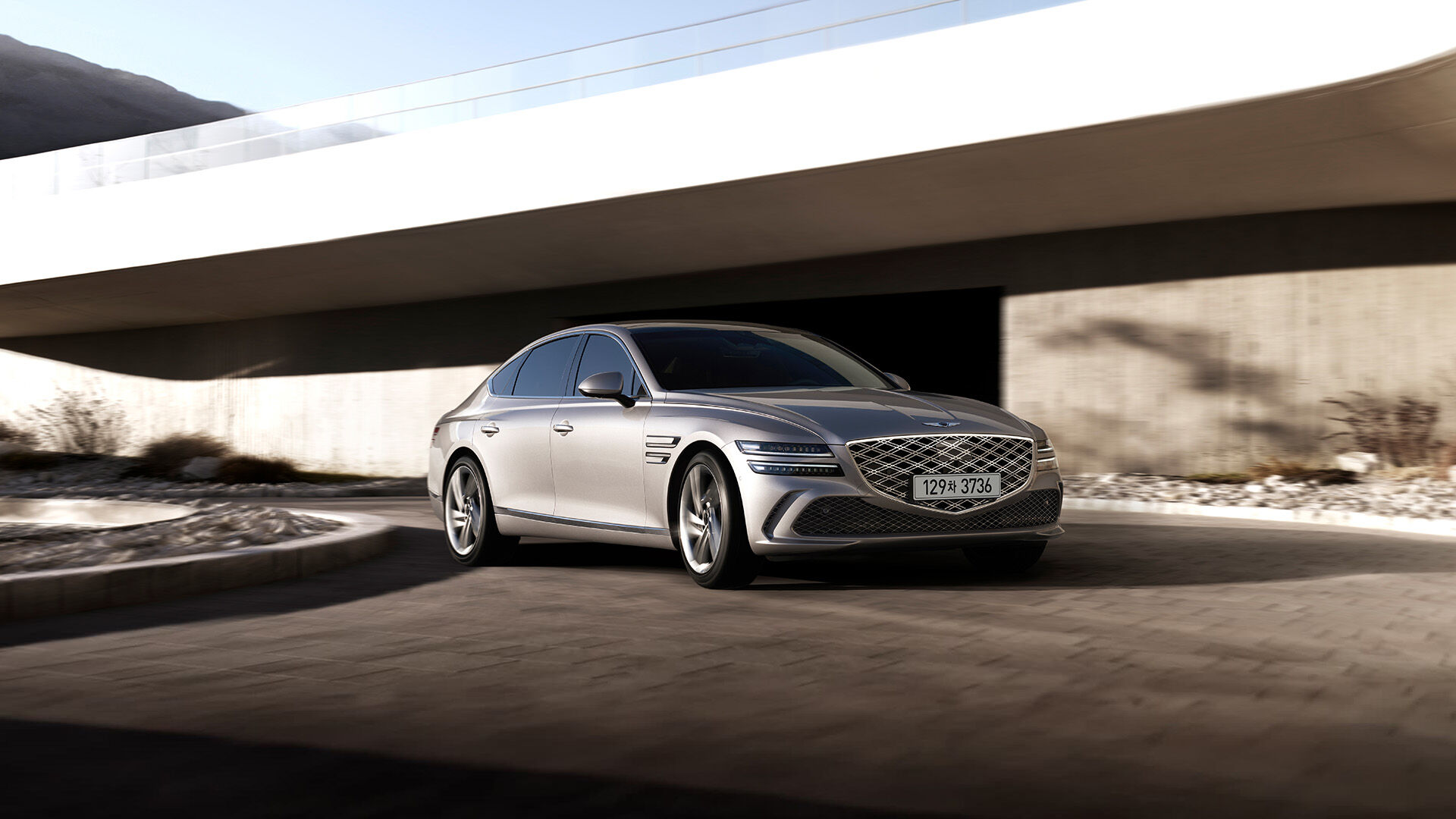Tokyo Hopes Rooftop Solar Mandate Will Help It Get Through Hot Summers
Like California, the Japanese capital wants the sun to power new homes, but some call policy ineffective and too reliant on China
TOKYO—Heat waves this summer are pushing Tokyo’s power grid near the limit. The city of 14 million has mandated installing solar panels on new single-family homes to get some breathing room—even if it has to buy most of the panels from China.
The policy in one of the world’s largest metropolises is a test case for whether solar power makes sense on urban rooftops. The idea has long drawn attention as a way to fight global warming but has advanced relatively slowly worldwide, apart from a rooftop solar mandate in California pushed by Democratic Govs. Jerry Brown and Gavin Newsom.
“We need to prepare to protect not only our national security, but also the energy security of individual households,” Tokyo Gov. Yuriko Koike, the architect of the mandate, said in an interview.
Koike has had panels on her own house for a decade. As a government minister, she created a “Cool Biz” plan that led Japanese salarymen to ditch suits and ties in summertime so they could keep the thermostat higher.
In the Land of the Rising Sun, Koike said, “we unfortunately aren’t rich in oil and gas, but wouldn’t it be fitting if we could instead harness the sun?”
Proponents say more rooftop solar would help on hot summer days when electricity demand peaks, and make the city resilient if an earthquake or typhoon knocked out the power grid.
The downsides: More solar also means higher electricity bills, including for lower-income apartment dwellers, because homeowners with rooftop panels can sell their excess power to the grid at an above-market rate. Even with the mandate, solar power generated in Tokyo is projected to supply only 4% of the city’s electricity in 2030.
“We cannot have a sufficient amount of power generation just by having solar panels on limited rooftops,” said Tatsuya Terazawa, head of the government-affiliated Institute of Energy Economics, Japan.

Still, Koike said it is important to move toward carbon-neutral electricity and help Japan buy less Russian natural gas.
The city predicts that by 2050, half of Tokyo’s current structures will be replaced. “By targeting newly built houses, we can decide the future 50 years from now,” Koike said.
Tokyo’s mandate, released last December, will initially apply only to about 50 of the largest home builders in the city, which it says account for around three-fifths of new homes. Starting in April 2025, those builders will be given a quota that will in effect require them to put panels on most new homes, while allowing them leeway to forgo solar in cases where the roof is too small or lacks sunlight exposure.
“We want companies to make sure that wherever you can put them, you put as many as you can,” said city environmental official Toshifumi Fukuyasu.
Japan relies on imported natural gas and coal for most of its electricity, and Russia supplies about one-tenth of its natural gas. The power company serving the capital, Tokyo Electric Power, or Tepco, isn’t operating any nuclear plants currently after the meltdowns at its Fukushima Daiichi plant in 2011.
In March 2022, the city came dangerously close to running short of electricity on a cold day, and it faced another crunch months later during a heat wave.
Tepco has managed to keep the lights on this summer, despite weeks of sweltering weather in which the thermometer consistently topped 95 degrees. Still, it says it worries about electricity running short, and the city encourages people to keep their homes at 82 degrees.
Tokyo University professor Yumiko Iwafune, who studies energy demand, said that even if rooftop solar panels don’t generate much electricity overall, they still can help households become self-sufficient on summer days, lessening demand on Tepco.
Tokyo has drawn comparisons between its policy and California’s rooftop solar mandate, which took effect in 2020 and similarly applies to new low-rise residential buildings. The California Energy Commission estimates that 150,000 new homes covered by the law have been constructed with solar panels.
Newsom, the governor, said in May 2022 that rooftop solar is “an industry that is essential to our state’s future.” California expanded its mandate last year to encompass certain new commercial buildings.
But the state’s mandate is contentious even among advocates of renewable energy, some of whom say it would be cheaper to build large solar and wind installations.
James Bushnell, an economics professor at the University of California, Davis, said rooftop solar mandates tend to raise electricity bills for people who don’t have solar because grid operators often pay higher prices for home-generated electricity. “A large ‘benefit’ of solar is in fact a shift of costs onto other, often lower-income non-home owning customers,” Bushnell wrote in an email.
Another problem in Japan is its lack of domestically produced solar panels, although it was once a leader in the technology.
According to the International Energy Agency, China produces around 85% of the globe’s solar cells and 95% of key components needed to make them.
“We’ve realised we can’t win against China,” said a spokesman for the Japan Photovoltaic Energy Association, an industry group representing companies in the solar-energy business.
Unlike the U.S., Japan still permits the import of solar panels with materials sourced from China’s Xinjiang region, where the U.S. has alleged the Beijing government has carried out genocide against the Uyghur ethnic group. Beijing denies that.
“Most people aren’t very aware about the human-rights violations associated with solar panels. They think of it as a good thing because of the environment,” said Taishi Sugiyama, a research director at the Canon Institute for Global Studies, a Tokyo-based think tank. He said Tokyo should scrap its solar mandate.
Fukuyasu, the Tokyo city official, said he agreed Japan needed more suppliers of solar panels. “But in Tokyo, we need solar to create a zero-emission society, and we can’t postpone that,” he said.
 Copyright 2020, Dow Jones & Company, Inc. All Rights Reserved Worldwide. LEARN MORE
Copyright 2020, Dow Jones & Company, Inc. All Rights Reserved Worldwide. LEARN MORE
Chris Dixon, a partner who led the charge, says he has a ‘very long-term horizon’
Americans now think they need at least $1.25 million for retirement, a 20% increase from a year ago, according to a survey by Northwestern Mutual
The G80 Sport makes its entrance, displaying dynamic design details and elevated automative capabilities.
Juma Al Majid LLC, the exclusive dealer for Genesis in the UAE, has launched the G80 – a cutting-edge luxury sedan. Merging tradition with innovation, this model embodies Genesis‘ relentless pursuit of superior design, state-of-the-art technology, and unmatched luxury.
The new G80 marks a significant milestone in introducing Korean automotive excellence to the UAE, highlighting the brand’s commitment to providing exceptional experiences.
Meticulously crafted, the redesigned G80 adheres to the ‘Athletic Elegance’ design philosophy synonymous with Genesis. This luxury vehicle features refined details and cutting-edge specifications, combining comfort and style to elevate every driving experience to new heights.
“The debut of the all-new G80 in the UAE market propels our vision to converge advanced technology and refined elegance”, stated Suliman Al Zaben, Director of Genesis, UAE. “This launch is a step forward for Genesis in the UAE market and strengthens our efforts to offer ultimate luxury, innovation, and unique design to our incisive customer base.”
With a new dual-mesh design, the G80’s exterior enhances the sophisticated appearance of the Two-Line Crest Grille, paired with iconic Two-Line headlamps featuring Micro Lens Array (MLA) technology. This highlights Genesis’ commitment to harmonizing advanced technology with elegant design. The five 20-inch double-spoke wheels exude a dynamic aesthetic, resembling sleek aircraft lines, complementing the car’s parabolic side profile. Rear diffusers conceal mufflers adorned with distinctive V-shaped chrome trim inspired by the Crest Grille, embodying an eco-conscious ethos in today’s technology-driven era.

The G80 reinforces Genesis’ design philosophy in its interiors, inspired by the uniquely Korean concept of the Beauty of White Space, integrated with state-of-the-art technology to create cosmetic brilliance for users. The 27-inch-wide OLED display seamlessly combines the cluster and AVN (Audio, Video, Navigation) screen in a horizontal layout, extending to the center fascia, showcasing its flair for innovative technology. The touch-based HVAC (Heating, Ventilation, and Air Conditioning) system offers ease of control, while the redesigned crystal-like Shift By Wire (SBW) ensures a comfortable grip, infusing a sense of luxurious convenience.
With its dual-layered Crest Grille and expanded air intakes, the G80 Sport package delivers a dynamic and sporty spirit. Exclusive interior options, such as a D-cut steering wheel and carbon accents, enhance its sporty allure. Equipped with Rear Wheel Steering (RWS) and Electronic Limited Slip Differential (E-LSD), the G80 Sport 3.5 twin turbo model is built for stable control during high-speed maneuvers.
Fitted with advanced safety and convenience features, this luxury sedan includes Remote Smart Parking Assist 2, Lane Following Assist 2, and a Fingerprint Authentication System. The three-zone HVAC system provides customized climate control for all passengers. With two powertrain options – a 2.5 turbo engine delivering 300 horsepower and 43.0 kgf·m of torque, and a 3.5 twin turbo engine producing 375 horsepower and 54.0 kgf·m of torque – superior driving dynamics ensure a silent and luxurious driving experience.

Chris Dixon, a partner who led the charge, says he has a ‘very long-term horizon’
Americans now think they need at least $1.25 million for retirement, a 20% increase from a year ago, according to a survey by Northwestern Mutual





















